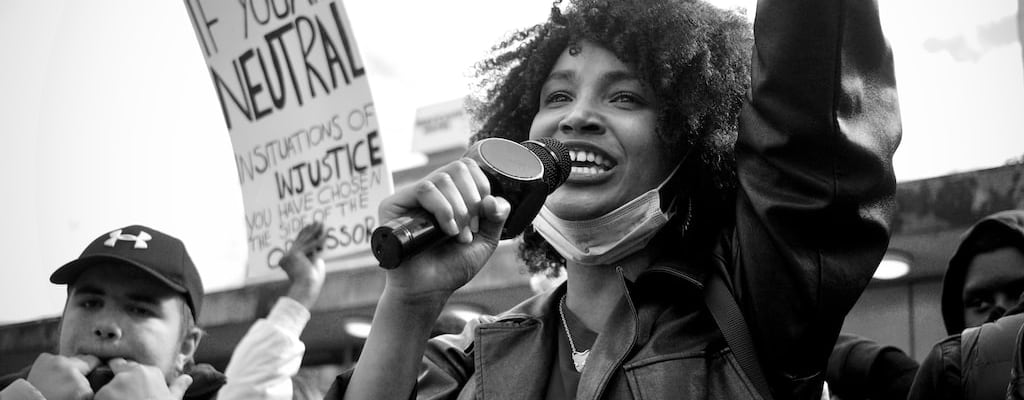butt heads: Idiom Meaning and Origin
What does ‘butt heads’ mean?
The idiom "butt heads" refers to a situation when two or more people strongly disagree or argue with each other. It implies a clash of opinions, often resulting in conflict or power struggles.

Idiom Explorer
The idiom "kick butt" means to take strong, decisive action or to defeat someone or something decisively. It is often used to describe a forceful or aggressive manner of accomplishing a task or overcoming an obstacle.
An idiom meaning a controversial issue or situation that is difficult to handle, and often passed quickly from person to person to avoid dealing with it.
The idiom "head and shoulders" means to be significantly better or superior compared to others in a particular area or aspect.
The idiom "have words" means to argue or have a heated discussion with someone.
The idiom "hammer-headed" refers to someone who is stubborn or obstinate, often refusing to listen to reason or change their mind.
The idiom "fall out" means to have a quarrel or disagreement with someone. It refers to a situation where two individuals no longer get along or have a conflict that causes distance or hostility between them.
The idiom "falling out" means to have a disagreement or a rift with someone, resulting in the end of a friendship or relationship.
The idiom "fall foul" means to come into conflict or disagreement with someone or something, often resulting in negative consequences.
A Clash of Minds
The idiom "butt heads" is a figurative expression used to describe a situation where two or more individuals have a disagreement or conflict. It is often used to depict a clash of opinions or personalities. The origin of this idiom can be traced back to the physical act of two animals, such as goats or rams, colliding their heads or horns to assert dominance or compete for territory. Through time, this behavior has been metaphorically applied to human interactions to signify a confrontation or an inability to find common ground.
This idiom, "butt heads," has become popular in colloquial speech and writing, particularly in the United States. It effectively captures the essence of a clash or difference of opinions, making it a vivid and concise expression. Its idiomatic nature allows for easy understanding and recognition among native English speakers.
The usage of "butt heads" is not limited to any specific region, social group, or age range. It has become a part of everyday language and is commonly employed in both informal and formal contexts. The idiom has expanded beyond its literal meaning and now encompasses various types of conflicts, including ideological, personal, or professional clashes.
It is worth noting that the idiom "butt heads" is not considered offensive or vulgar. It is widely accepted as a harmless and colorful phrase used to describe conflicts or disagreements. The idiom has gained prevalence in popular culture, appearing in literature, movies, and everyday conversations.
The idiom "butt heads" is a widely recognized expression symbolizing a clash or conflict between individuals. Its origins can be traced back to the physical behavior of animals. However, it has evolved into a metaphorical phrase used to describe disagreements or disputes among humans. Its usage is not restricted to any specific region or social group, making it a universally understood idiom. "Butt heads" captures the essence of conflict in a succinct and vivid manner, making it an essential part of the English language.
The idiom "butt up" is closely related to "butt heads." It carries a similar meaning, describing a situation where two or more individuals have a disagreement or conflict. However, "butt up" suggests a slightly less intense clash compared to "butt heads." It implies a confrontation or disagreement, but not necessarily to the point of becoming a full-blown conflict. Individuals who "butt up" against each other may have differing opinions or ideas, but they may be more willing to find a resolution or compromise compared to those who "butt heads."
In a similar vein, the idiom "come to blows" is also related to "butt heads." This idiom implies a more physical and aggressive confrontation. It suggests that the conflict or disagreement has escalated to the point where physical violence is a possibility. While "butt heads" describes a clash or conflict of opinions or ideas, "come to blows" takes it a step further, indicating that the disagreement has become so heated that it may result in physical altercation.
Another related idiom is "cross swords." Like "butt heads," this idiom refers to a conflict or disagreement between individuals. However, "cross swords" carries a slightly different connotation. It suggests that the disagreement is more formal or intellectual in nature, often occurring in a professional or academic setting. "Cross swords" implies a clash of ideas, arguments, or intellectual prowess, emphasizing the intellectual aspect of the disagreement rather than personal animosity or differences.
"at each other's throats" is yet another idiom that relates to "butt heads." This idiom describes a situation where two or more individuals are engaged in a severe and continuous confrontation or conflict. It suggests a deep-seated animosity or hostility between the parties involved, with no intention of finding a resolution or compromise. Unlike "butt heads," which can sometimes imply a temporary clash, "at each other's throats" implies a long-lasting and ongoing conflict.
The idiom "fall out" is also connected to "butt heads." However, "fall out" implies a more sudden and dramatic disagreement or conflict. It suggests that the individuals involved were previously on good terms but have experienced a significant falling out or disagreement. "Fall out" often implies a rupture in a relationship or friendship due to irreconcilable differences or a severe conflict of interests. It signifies a more emotional or personal clash compared to the objective and idea-based conflict described by "butt heads."
Example usage
Examples of how the idiom "butt heads" can be used in a sentence:
- My sister and I always butt heads when it comes to choosing a movie to watch.
- The two politicians constantly butt heads during the debate, each defending their own ideologies.
- The coach and the star player often butt heads over strategies and game plans.
More "Conflict" idioms



